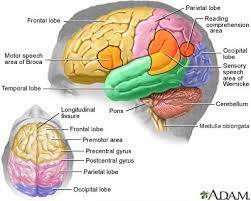The human Memory plays a very big roles in our daily lives, just like how we use the word 'thanks', 'welcome', 'please', 'sorry', and the likes.
It's very common as a word as any other.
THE REAL DYNAMICS OF MEMORY FUNCTIONING IN PSYCHOLOGICAL TERMS.
Memory is a place where informations are stored,processed and retrieved whenever needed. Imagine a large palace adorned with chandeliers and containing a lot of rooms, smaller than the bigger hall that stands in the middle. Psychologists refer to this place as the human memory palace. A memory palace is nothing but hypothetical place which has been constructed to give an idea of how memory functions.
This memory is divided into different chembers for different purposes;
One chember could be filled with memories associated with your love interest on that day that you had a romantic launch with your date.
Another chember will be filled with embrazing stories from your past, when you were dancing at a party and all of the sadden, your pants ripped etc.
BIOLOGICAL UNDERSTANDING OF MEMORY
The primary memory:
Primary memory refers to the short- Term memory (STM). It's a volatile memory system that temporarily holds and process information for a short period of time.
The Primary memory is characterized by:
1. Information is held for a short time.
2. Information is easily forgotten unless rehearsed or consolidated in long-term memory.
Examples of primary memory in humans include:
1. Recalling a list of items.
2. Holding a mental calculation in mind.
3. Remembering a phone number long enough to dial it.
The Secondary Memory:
Secondary memory refers to Long-Term Memory (LTM). It is a permanent storage system that holds vast amount of information over an extended period of time (hours, days, weeks, years or a lifetime).
Secondary memory in human is charactERIzed by:
1. Information can be retrieved through recall or recognition.
2. large capacity (potentially unlimited)
3. Information is stored for an extended period.
Examples of secondary memory in humans include:
1. Recalling learned skills or knowledge (e.g., ridding a bike or language)
2. Retrieving memories from past event or experiences
3. Remembering childhood events or experiences.




No comments yet
Be the first to share your thoughts!